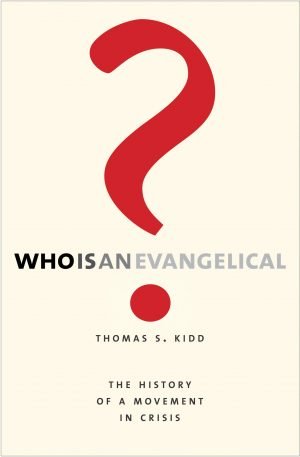Book review: Who Is an Evangelical?
The general public can answer the question, “Who is an evangelical?” with the answer, “White Republicans.” This, however, like many trite and oversimplified answers misses the idea of American evangelicalism. Even the idea that evangelicals are Americans misses the basic idea of evangelicalism.
While I do not consider myself an evangelical, American or otherwise, I’m comfortable identifying with the definition given on page 4 of Who Is an Evangelical? The History of a Movement in Crisis (New Haven: Yale University Press, 2019, 191 pages) by Thomas Kidd: “Evangelicals are born-again Protestants who cherish the Bible as the Word of God and who emphasize a personal relationship with Jesus Christ through the Holy Spirit.” The definition rings true in my experience, because I think that the people I know who would consider themselves evangelicals see themselves this way. The notion that evangelicals are mostly members of a particular political party or ethnic group probably misses what evangelicals themselves consider to be important: born again, the Bible, personal relationship with Jesus, and (in most cases) the Holy Spirit.
Kidd’s book basically is a history of the evangelical movement, from the early 1800s and the First Great Awakening in England and America to the present. He acknowledges, and the subtitle notes, that modern evangelicalism is in crisis because of “white evangelicals’ uncritical fealty to the GOP.” However, he goes on to say that “evangelicalism in practice remains an ethnically [he describes black evangelicalism in the book] and politically diverse movement focused on the new birth in Christ.” While the media and the American populous have seized on the notion of equating the term evangelical with white Republicans, Kidd’s history shows that this is a recent and narrow perspective.
I was surprised by many things in the book. For example the role evangelicals played in early America in urging the acceptance of a wall of separation between the government and the church. Kidd, as a professor of History at Baylor University, provides a balanced, yet sympathetic look at the evangelical movement. The book is a short and easy read. I recommend it.
